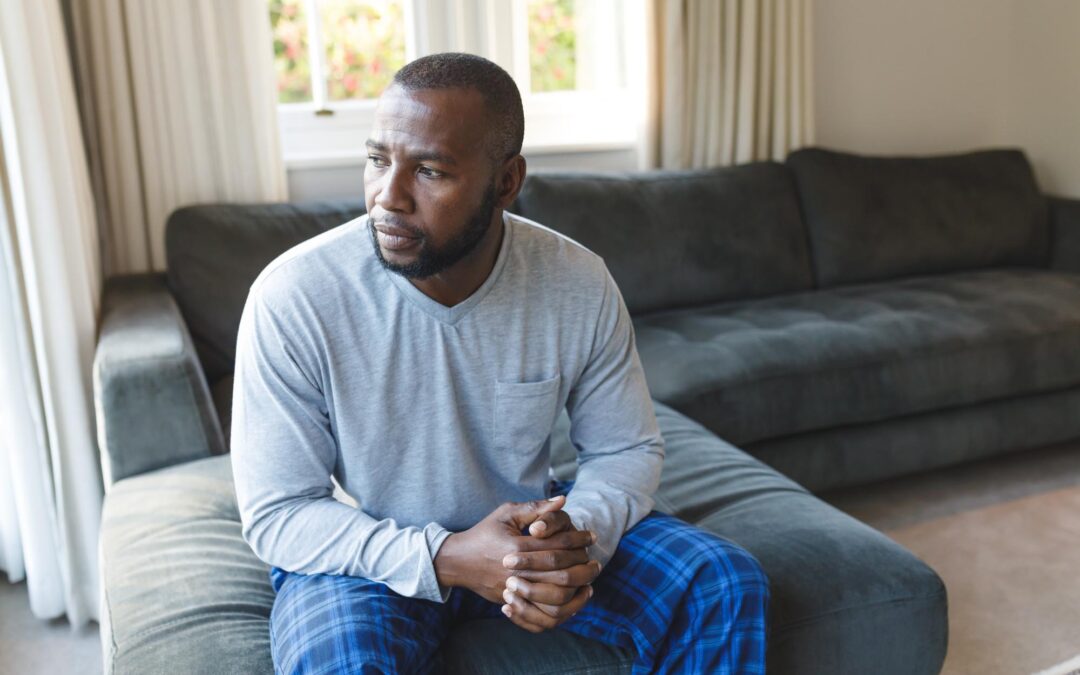How to Manage Holiday Addiction Triggers (When You’re Still Using)
Understanding Holiday Addiction Triggers
Addiction triggers are specific people, places, emotions, or situations that intensify substance cravings and can challenge your commitment to change. During the holiday stress period, these triggers become particularly concentrated and difficult to avoid.
Holiday triggers you might encounter include:
- Social gatherings where alcohol or drugs flow freely, creating a scenario of peer pressure that can be hard to resist
- Family conflicts that resurface during reunions, possibly exacerbating any underlying PTSD symptoms which may create a fertile ground for addiction
- Financial pressure from gift-giving expectations
- Emotional triggers like loneliness when comparing your situation to others’ celebrations
- Anxiety about facing relatives who may judge your current struggles
- Familiar settings—like your childhood home—where you’ve used substances before
These situations amplify substance cravings because they activate both psychological associations and stress responses in your brain. The combination of heightened emotions, increased access to substances, and disrupted routines creates a perfect storm that makes managing use more challenging during this season. For individuals struggling with addiction, it’s important to seek support systems like Alcoholics Anonymous which offers a structured 12-step program and community support for recovery.
Identifying Your Personal Triggers
Self-awareness becomes your most valuable tool when navigating the holidays while still using. Personal addiction triggers vary significantly from person to person—what sends one individual into intense cravings might barely register for another. This is why trigger identification requires honest, individualized reflection rather than generic assumptions.
Keep a Journal
Start by keeping a simple journal during holiday interactions. Note when cravings intensify and what preceded them: Was it a specific conversation topic? A particular room in your family home? The sound of ice clinking in glasses? The feeling of being excluded from conversations?
Practical Techniques for Self-Awareness
- Track your emotional state before, during, and after holiday gatherings
- Notice physical sensations that accompany cravings (tension, restlessness, stomach discomfort)
- Identify patterns in your substance use—certain times of day, specific people, particular locations
- Pay attention to sensory triggers: smells, sounds, or visual cues that spark memories of past use
Some triggers hide beneath the surface. The scent of your grandmother’s perfume might connect to memories of sneaking drinks at past family dinners. Your uncle’s well-meaning questions about your life might trigger shame that you’ve historically numbed with substances. Recognizing these subtle connections takes patience and compassionate self-observation, not harsh judgment.
Be Aware of Underlying Emotional Conditions
It’s also important to be aware of any underlying emotional conditions that may worsen these triggers. For instance, depression symptoms can manifest in various ways and might be surprisingly subtle. Recognizing these hidden signs is crucial for early intervention and could significantly aid in managing both your mental health and addiction triggers during this challenging time.
Planning Ahead for Holiday Events
Event planning addiction recovery requires intentional preparation rather than hoping willpower alone will carry you through. Before accepting any invitation, ask yourself honest questions: Will substances be present? Who will attend? How long do you realistically want to stay? Creating a concrete plan transforms vague intentions into actionable steps.
Consider these coping strategies holidays when preparing for gatherings:
- Arrive with a trusted person who understands your situation and can leave when you need to
- Park your own vehicle to maintain control over your departure time
- Eat beforehand to avoid hunger-driven decisions and maintain stable blood sugar
- Bring your own non-alcoholic beverages to always have something in hand
- Identify a quiet space at the venue where you can take breaks if needed
Setting limits on time spent at gatherings protects your well-being without requiring elaborate explanations. Decide your maximum stay time before arriving—perhaps 90 minutes instead of the entire evening. When planning your exit strategy, prepare a simple, truthful reason: “I have an early commitment tomorrow” or “I’m not feeling well and need to head out.” Your phone can become a helpful tool here; set a discrete alarm as your cue to begin wrapping up conversations and saying goodbyes. This approach to holiday parties substance use management acknowledges that attending events while still using requires extra vigilance and self-compassion.
Practicing Refusal Skills Confidently
Developing strong refusal skills for addiction management techniques protects your autonomy when substances are offered. Saying no to substances becomes easier when you prepare specific responses that feel authentic to you. Consider phrases like “I’m taking care of my health right now,” “I’m good with what I have,” or simply “No thanks, I’m all set.” These statements require no explanation or justification.
To enhance your ability to refuse substances, it can be beneficial to engage in activities such as assertiveness training recovery, which often involves rehearsing these responses before high-pressure situations arise. Practice with a trusted friend or therapist, experimenting with different tones and body language until you find what feels natural. Notice how your voice sounds, where you make eye contact, and how you hold your posture. This preparation builds muscle memory for real-world scenarios.
When someone persists after your initial refusal, repeat your chosen phrase calmly without elaborating. You might redirect the conversation immediately: “So, how’s your new job going?” This technique, called the “broken record” method, maintains your boundary while keeping social interactions flowing naturally.
For those struggling with substance use, seeking professional help can be a crucial step. Inpatient drug rehab in California offers a structured environment that supports lasting recovery through comprehensive treatment options and holistic approaches.
Building a Support Network During the Holidays
The holidays can make you feel more isolated, especially when you’re dealing with substance use on your own. That’s why having a support network recovery system in place is so important. It can be your lifeline during difficult times—whether it’s a friend you can reach out to late at night or someone who understands the specific challenges that come with the holiday season.
Identify people who:
- Accept where you are right now without judgment
- Respect your boundaries around substance use
- Respond when you reach out, especially during vulnerable moments
- Understand that recovery isn’t always a straight path
Peer support addiction connections often provide the most authentic understanding. Consider attending recovery meetings—many groups schedule extra sessions during December knowing this period challenges members. Virtual support groups offer flexibility when family obligations make in-person attendance difficult.
Family support substance use looks different for everyone. Some relatives become allies; others remain unsafe. Choose wisely who you confide in about your struggles. One supportive person who truly listens matters more than a dozen who offer empty platitudes or pressure you to “just stop.” However, it’s important to remember that family support plays a critical role in recovery, especially when dealing with challenging substances like fentanyl.
Setting Healthy Boundaries with Family and Friends
Family dynamics during holidays can intensify stress, especially when relatives ask intrusive questions about your life, make judgmental comments, or enable substance use. Recognizing these patterns before gatherings allows you to prepare protective responses. Boundary setting in addiction recovery means deciding what conversations, behaviors, and situations you’ll participate in—and which ones you won’t.
Communicate Your Limits
Communicate your limits directly but calmly. If certain topics trigger anxiety or defensiveness, let trusted family members know beforehand: “I’m not comfortable discussing my job situation right now” or “I need us to avoid conversations about my past this year.” You don’t owe anyone detailed explanations for protecting your well-being.
Be Firm with Substances
When relatives offer substances or pressure you to drink, a simple “No thanks, I’m good” works without inviting debate. If someone persists, excuse yourself to another room or step outside. Your boundaries aren’t negotiable, even during celebrations meant to bring families together. Protecting your sobriety through clear limits demonstrates self-respect and creates space for genuine connection on your terms.
Prioritizing Self-Care Throughout the Holiday Season
The chaos of holiday schedules often pushes basic needs to the bottom of the priority list, yet self-care addiction recovery depends on these fundamentals. When you’re still using, maintaining consistent routines becomes even more critical for managing cravings and protecting your mental health.
Physical foundations matter:
- Nutrition and hydration: Regular meals stabilize blood sugar and mood, reducing the intensity of cravings. Keep water nearby throughout the day—dehydration amplifies anxiety and physical discomfort.
- Sleep hygiene: Aim for consistent sleep and wake times, even during holiday disruptions. Exhaustion weakens your ability to cope with triggers and makes impulsive decisions more likely. Incorporating some fatigue-fighting tips into your routine can help maintain this consistency.
- Movement: A 15-minute walk can shift your emotional state when stress builds. Exercise releases natural mood-boosting chemicals that counteract the holiday pressure.
Stress reduction practices:
- Deep breathing exercises (try the 4-7-8 technique: inhale for 4 counts, hold for 7, exhale for 8)
- Progressive muscle relaxation before bed
- Five minutes of stretching when tension accumulates
These aren’t luxuries—they’re essential tools for nutrition sleep exercise mental health holidays management. Your body and mind need reliable support systems, especially when navigating substance use during this demanding season.

Creating Alternative Recovery-Friendly Traditions
The holidays don’t have to revolve around the same patterns that once centered on substance use. Alternative holiday traditions recovery-friendly approaches can reshape how you experience this season, creating space for genuine connection and joy. Consider organizing a morning hike with supportive friends, hosting a game night with non-alcoholic beverages, or volunteering at a local shelter where your presence makes a tangible difference. These sober celebrations holidays offer something substance-centered gatherings cannot: authentic presence and memories you’ll actually remember.
If you or someone you know is struggling with substance use, it might be worth considering professional help such as the services offered by CNV Detox, which provides drug and alcohol detoxification and rehabilitation in California.
Meaningful activities that foster connection include:
- Organizing a holiday movie marathon with comfort foods and cozy blankets
- Starting a gratitude jar tradition where everyone shares what they’re thankful for
- Cooking or baking together, focusing on the creative process rather than the outcome
- Attending community events like tree lightings, concerts, or holiday markets
- Creating handmade gifts or cards that reflect personal thoughtfulness
These activities engage your mind and hands in ways that naturally reduce cravings while building relationships based on shared experiences rather than shared substances.
Managing Emotional Challenges During Holidays While Still Using
The holidays can bring up a lot of emotions that make cravings stronger. You might feel lonely when you see other people celebrating, nostalgic when you think about past holidays, and anxious about what your family expects from you. These feelings don’t go away just because you’re still using; in fact, they often become more complicated.
Mindfulness techniques offer immediate relief when emotions feel overwhelming. Taking five slow breaths while noticing physical sensations grounds you in the present moment rather than spiraling into past regrets or future worries. The simple act of naming what you’re feeling—”I notice I’m feeling lonely right now”—creates distance between you and the emotion.
Gratitude practices shift focus from what’s missing to what remains. Writing down three specific things each morning (a warm bed, a kind text message, your favorite coffee) rewires your brain toward noticing positive aspects of your current reality. This isn’t about denying pain; it’s about building emotional resilience alongside it.
When difficult emotions hit:
- Call someone who understands your situation before the feeling escalates
- Move your body—even a brief walk changes your emotional state
- Journal without editing to release what’s weighing on you
- Listen to music that matches then gradually shifts your mood
These strategies work whether you’re actively using or working toward change, creating space between feeling and reaction.
It’s also important to acknowledge that these emotional challenges may sometimes lead to feelings of depression. In such cases, coping with depression through effective strategies such as seeking support, practicing mindfulness, and maintaining proper nutrition can significantly enhance your mental health.
Creating a Supportive Environment To Reduce Exposure
Your physical and social surroundings shape your experience more than you might realize. Creating a supportive environment requires intentional choices about where you go and who you’re with.
Consider these protective strategies:
- Decline invitations to events centered around substance use
- Spend time with people who respect your current situation without judgment
- Choose public, well-lit venues over private parties where substance use is likely
- Keep your living space free from paraphernalia and reminders of use
- Identify places where it becomes easier to choose safe spaces—coffee shops, parks, community centers
The people who truly care about you will understand when you need to protect yourself. You’re not avoiding life; you’re choosing environments that support the person you’re working to become. Even small adjustments to your surroundings can significantly reduce daily exposure to triggers.





